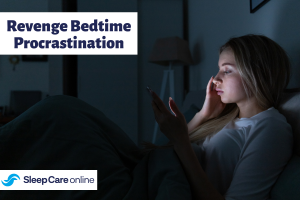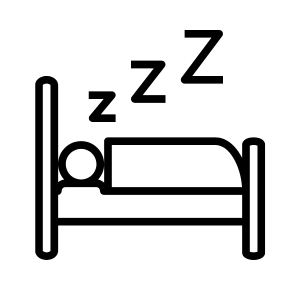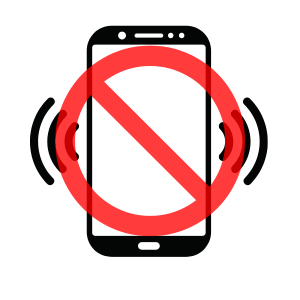Refusing to go to sleep at your bedtime may seem like a throwback to childhood. But many adults still fight off sleep to extend the time they want for waking activities or as a response to stress. This behavior is known as revenge bedtime procrastination.
What Is Revenge Bedtime Procrastination?
The term revenge bedtime procrastination arose in social media during the COVID-19 pandemic. As most people were detoured from regular daytime schedules due to sheltering in place, their nighttime schedules shifted as well. People began staying up later, sleeping during the day, and developing erratic sleep schedules that no longer depended on a regimented bedtime.
What Are the Signs and Symptoms Of Bedtime Procrastination?
Revenge bedtime procrastination is a form of sleep deprivation which can lead to:
- Daytime drowsiness
- Impaired concentration, memory, and cognitive ability
- Mood swings, irritability, and other behavioral changes due to lack of sleep
- Effects on physical health over a long period of time
Causes Of Revenge Bedtime Procrastination
Consistent sleep schedules are important for personal health. As we shift to erratic schedules in our lives, sleep becomes erratic as well. Causes of revenge bedtime procrastination include:
- No consistent daytime schedule, which leads to no consistent sleep schedule at night
- Daytime napping, which can lead to wakefulness during the night
- Stress triggered by boredom or nonproductive behavior that interrupts normal sleep
Why Is “Revenge” Associated with Bedtime Procrastination?
The concept of getting revenge on bedtime schedules has a lot to do with our childhoods. Our parents may have required a set bedtime, which as children we may have rebelled against in minor ways, but without real results.
As adults, we align to schedules set by work and parenting. During COVID-19, however, those disciplines were abandoned as we sheltered in place. Many adults saw the opportunity to live without schedules as a freedom that reflected childhood desires. But as adults, they now have more power, and they can get revenge against these schedules by intentionally procrastinating and not going to bed on time.
Bedtime Procrastination and The Psychology Behind It
Our adult responsibilities and personal commitments subdue any rebelliousness that we had in youth. But during the COVID-19 pandemic, schedules became less strict, and people began to revisit those rebellious emotions. Not going to bed on time became a mild form of revolt for most adults. They could stay up late on a weeknight, work on personal projects in their own time (sometimes late into the night), and sleep during the day without feeling guilty about being perceived as lazy.
Who Is Affected by Revenge Bedtime Procrastination?
Because revenge bedtime procrastination is a new phenomenon there is no research that directly pinpoints a group of people most likely affected by it. However, the COVID-19 pandemic was a factor as many people were now required to work from home. Many people began to work longer hours at home, living outside the set schedule that working at a job location provided.
However, sleep procrastination may also be related to procrastination behaviors in other areas of life. Outside of the impact of the pandemic, those who experienced bedtime procrastination were more likely to procrastinate projects at home, school, or work and were less likely to adhere to appointments scheduled tasks, and other responsibilities that required self-regulation and discipline.
How To Stop and Deal with Revenge Bedtime Procrastination?
Because bedtime procrastination is about self-regulation and discipline, it can be stopped. Here are a few ways to improve your sleep behavior.
 Prioritize Sleep
Prioritize Sleep
Make sleep important—just as important as your diet or other choices in your life. Be mindful of your sleep schedule and how much sleep you need and get. If you feel more rested the next day, you’ll have an ample amount of energy to get through your daily activities.
 Practice Good Sleep Habits
Practice Good Sleep Habits
Know the things that are harmful to a good night’s sleep and avoid them. Learn what is interrupting your nightly sleep and take steps to make improvements like sticking to a set sleep schedule. Some examples include restricting alcohol and/or caffeine too close to bedtime, having a peaceful bedroom environment, and keeping a consistent bedtime schedule.
 Schedule Time for Yourself
Schedule Time for Yourself
If children and work are stressing you out and affecting your sleep, take some time for yourself. Read a book or meditate to help manage your stress and make your health as important as other responsibilities in your life.
 Start Your Nighttime Routine Earlier
Start Your Nighttime Routine Earlier
Preparing for bed is just as important to sleep as sleep itself. Start preparing for bedtime earlier. Avoid alcohol and caffeine a few hours before bedtime. Start preparing your mind for sleep hours before you actually lay down in bed. Learn more about an appropriate bedtime routine for adults.
 Turn Off the Digital Devices
Turn Off the Digital Devices
TVs, computers, and phones can overstimulate and keep you up. Turn off the TV, shut down the computer, and put your phone away a few hours before bedtime. The blue light emitted from these devices actually deters you from falling asleep, so avoiding them all together will be highly beneficial in falling asleep.
 Exercise
Exercise
Exercise during the daytime hours can relieve stress that affects sleep. It can also help wear out the excess energy that can keep you up at night. It is recommended to exercise earlier in the day as too close to bedtime can actually have some negative effects.
 Quiet Your Mind
Quiet Your Mind
Your busy mind is a big problem for sleep. Try to follow meditation practices or yoga before bedtime. Quieting the mind prepares you for healthy sleep and prepares you for falling asleep quickly and peacefully.
 Consider ADHD Medication
Consider ADHD Medication
Other conditions such as ADHD may be affecting your sleep. Medications to help control mood swings and emotions can also help contribute to better sleep. We recommend talking to your doctor if you think you have ADHD or other disorders that are hindering you from getting the sleep you need.
 Create A Separation from Home Life and Work Life
Create A Separation from Home Life and Work Life
Working from home can cause sleep disruption. If you cannot distinguish between your work hours and personal life hours, then the two can meld together, leaving you with no time to sleep. Be strict with your work life. Know when to punch out and get back to life. You may sleep better because of it.
Concluding Thoughts
Revenge bedtime procrastination is avoidable. However, it requires understanding the problem to stop the problem. If you think that your bedtime procrastination may be due to a sleep disorder like sleep apnea, it is important to get tested. Take the at-home sleep test for peace of mind. Contact Sleep Care Online at 866.465.4478 today!












